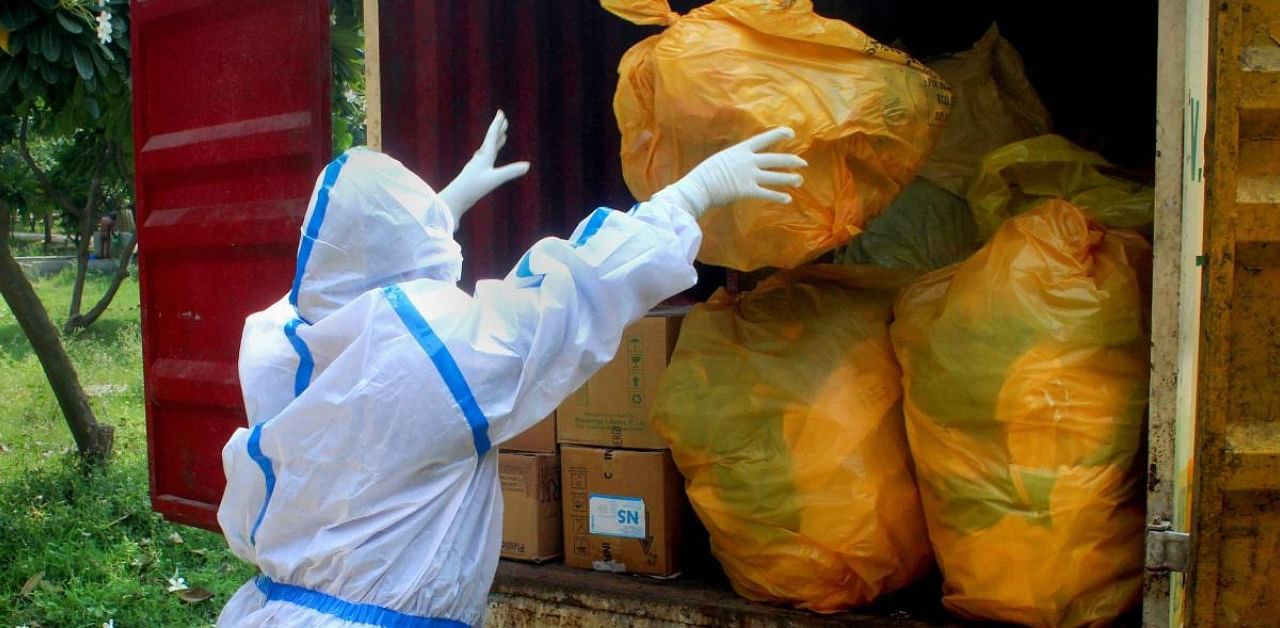
The surge of Covid-19 patients in various healthcare facilities across India has led to an increase in the quantity of biomedical waste. But despite strict rules, the lack of enforcement may lead to a large-scale negative impact on the society and environment.
Researchers of the Institute of Social and Economic Change (ISEC) have flagged the weak monitoring system and low accountability in the implementation of the biomedical waste management rules during Covid.
The study relied on a literature review to identify issues surrounding biomedical waste generated after the pandemic hit the country. Before Covid, 0.3 to 1 kg biomedical waste (BMW) was generated per bed per day.
"Statements of medical practitioners revealed approximately 15 times increase in BMW in case of treating Covid-19 patient, from 4.5 kg to 15 kg of such waste per bed every day," it said.
As most of the medical waste in India is handled by third-party organisations linked to municipalities, capacities, and compliance of those organisations play a major role in the safe management of the waste.
Incineration is the preferred way to dispose of biomedical waste. But, the study warned incomplete burning can result in production of dioxins which will have an adverse impact on human health.
Sunil Nautiyal, the lead researcher, said the government should set up flying squads to inspect hospitals and incinerators. "In terms of rules and policies, we have everything in place. But wide gaps in enforcement defeat such efforts," he said.